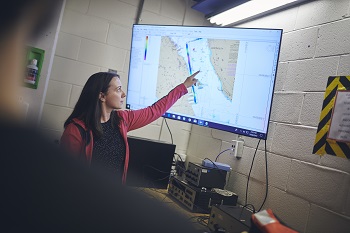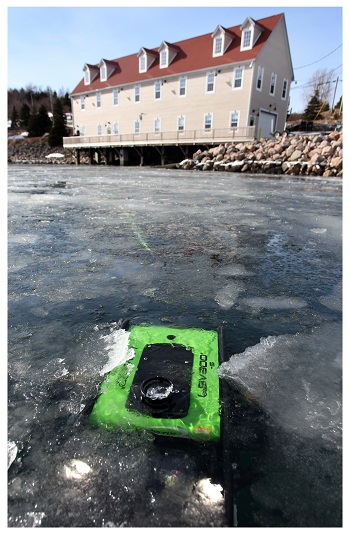News
Monday, February 14, 2022
Two School of Ocean Technology programs – remotely operated vehicles and ocean mapping – were recently accredited for achieving national education standards.
Both the Technician Diploma in Remotely Operated Vehicles and the Diploma of Technology in Ocean Mapping are one-of-a-kind programs in Canada that attract students nationally and internationally.
These programs were accredited by Technology Accreditation Canada (TAC), an autonomous, national accrediting body for Canada’s engineering technology and applied science professions.
Rigour and quality
“Technology Accreditation Canada is a third-party that validates the rigour and quality of our programs,” said Joe Singleton, interim Head of the School of Ocean Technology.
“It’s a thorough audit. TAC examines every step we take to ensure our students have a well-planned and well-executed education program with the supports and resources they need to excel – and everyone at every level of the institute contributes to this effort.”
Mr. Singleton says TAC has a strong focus on continuous improvement. Its auditors reviewed the Marine Institute’s approach to program delivery, including registration for courses, prerequisites required for programs, library resources and help centres available to students, work-term procedures, health and safety guidelines and professional development opportunities for faculty.
A team of five faculty and staff worked on the six-month accreditation process, providing documents and information to TAC. The next accreditation process begins in four years.
Significant achievement
“TAC congratulates the Marine Institute, with its remotely operated vehicles technician and ocean mapping technology programs becoming nationally accredited,” said Richard Stamper, TAC Executive Director.
“This significant achievement, meeting the education standards of the engineering technology and applied science profession, demonstrates each program’s leadership and commitment to its students and industry.”
TAC’s national program accreditation process includes a comprehensive audit of institutional policies and the program curriculum, interviews with employers of graduates, alumni, students and faculty and a tour of the programs’ labs and student support services.
The School of Ocean Technology programs were previously nationally accredited by the Canadian Technology Accreditation Board (CTAB). TAC assumed responsibility for all CTAB-accredited programs in November 2019.
Professional mobility
Mr. Singleton says program accreditations are important to both MI and its students.
“It ensures that MI has quality programs and that our graduates have the education, training and skills they’ll need to be hired by industry. TAC validates the quality of our processes – that we’re engaged with industry and we are continuously improving.
“The accreditation also opens up more job markets to our students.”
TAC accreditation provides graduates an accelerated path to earning a professional designation through certification certifying bodies across Canada, including the Association of Engineering Technicians and Technology of Newfoundland and Labrador (AETTNL).
AETTNL is one of nine provincial certifying bodies that recognizes the academic credentials of graduates of TAC nationally accredited programs.
This enables professional mobility across the country and also provides opportunities for international certification through the Dublin Accord signed by countries such as the United States, United Kingdom and South Africa.





